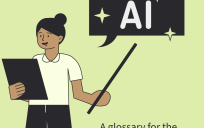There has been quite a bit of conversation about empathy over the past few years. Studies show its benefits in improving relationships, team dynamics and the social development of our children. At the same time, a body of research reveals that empathy often fails when needed most, like after large scale disasters and with people who are not the same race or background as us. A recent New York Times article entitled “Empathy is Actually a Choice” reveals an interesting and important aspect of the emotion, which can explain some of its perceived failures: empathy is only limited to the extent that we, ourselves, choose to limit it.
The article walks through a number of studies that expose our ability to choose when we employ empathy. The professors of psychology who wrote the article contend, based on these studies, that the limited practice of empathy is not an inherent issue with the emotion itself, but instead a choice that we make as individuals. In fact, the research in this article suggests that the perceived confines of empathy can actually change, depending purely on whether we want to extend ourselves to others.
You may find yourself wondering what this has to do with government. Well, I believe that empathy is a choice that people working in government need to choose more often.
Empathy is often described as the emotion through which you share another’s feelings and experiences. It is a deep, sensitive connection that makes us sense what another goes through. It is more than just a cognitive understanding of what someone else feels; it is the ability to feel what it is like to be in another person’s shoes. If government employees wanted to encourage themselves to employ empathy, there are a number of different techniques that can be used to elicit it, including empathy interviewing and periods of observation, as well as strategies for nurturing the growth of empathy.
This shift to empathy would necessitate leaving our perceptions of how citizens live at our desks and going out into communities to gain a richer understanding of their experiences. It would require choosing openness on many levels: being open to new experiences, being open to emotions, and being open to challenging our own opinions. In return, choosing empathy could result in outcomes, like:
- Creating realistic programs. (Empathy creates an awareness of what might be practical from a program participant’s perspective.)
- Knowing who your constituents are. (We all may think we know who our constituents are, but empathy enables you to know who they truly are—seeing them face-to-face–and how they live.)
- Staying in touch with the dynamics on the local level. (Empathy can help you understand what the environment feels like at the local level.)
- Designing programs and policies that meet citizens’ needs. (Empathy provides valuable insights into what a person needs or desires.)
Many offices in the government already encourage empathy or use empathy to guide their work. For example, the Innovation Lab at the Office of Personnel Management (Lab) utilizes empathy throughout its approach to projects. The Lab recently completed a project in partnership with the Department of Agriculture’s Food and Nutrition Services (FNS) in which empathy was a key component of the ultimate design of the solution. FNS runs the Federal School Lunch Program, which provides healthy, free or reduced-price meals to more than 31 million eligible school children daily throughout the school year. In an effort to ensure that eligible students were receiving access to the program, the Lab and FNS focused on the experience of applying to the program and concentrated their attention on the application itself. As part of this process, the team partnered with several public schools to learn about the current state and to test out ideas for improvements. This included engaging with many different people involved in the process including teachers, administrators, lunch room staff and parents. As new versions of the application were prototyped, they observed parents complete the application for their children through a combination of interviewing and think-aloud testing. These periods of observation provided a direct window into the experience of every day parents. The Lab and FNS staff were able to see with their own eyes parents struggling through the application, asking questions and often incorrectly completing the form. They watched as parents flipped back and forth between pages, looking for explanations to sections or trying to find an answer to a question. This opportunity to observe the experience of parents provided Lab and FNS staff with the ability to feel what parents across the country were feeling and see the form as they were seeing it. Time spent speaking with parents after the periods of observation provided additional context and awareness.
Choosing empathy is one reason the Lab and FNS developed a new application. By empathizing with parents, they gained awareness of the aspects of the form that were most challenging and why. The different iterations of the application developed were also grounded in empathy, and this approach ultimately resulted in a version that was shorter, less complicated and resonated with parents. The Federal School Lunch Program is just one example of how when government employees choose empathy, it can lead to developing informed policy. If you’re interested in learning more about the science behind empathy, check out Berkeley’s Greater Good.
Blair Corcoran de Castillo is part of the GovLoop Featured Blogger program, where we feature blog posts by government voices from all across the country (and world!). To see more Featured Blogger posts, click here.





Blair! Love this article, such an important practice that we need to learn more in government. Thank you for writing this!
Thanks so much. I agree!
Good article, Blair! I agree, and empathy is part of “emotional intelligence” that’s also becoming more important in how we do business and interact with others.
Becky – Great point about it’s role in emotional intelligence.
Thanks for writing. I love that you thought to write about this topic. Empathy can really cause good things to happen where we need them to happen the most.
I agree! We in government must sometimes be reminded that there are people behind the numbers and production milestones.
By consistently extending ourselves in friendly and thoughtful ways, we can build and maintain citizen engagement — which is good for all!
Thx, Ms. de Castillo! VR
For a cornucopia of resources on empathy see the Center for Building a Culture of Empathy
http://CultureOfEmpathy.com
We added your article to our curated magazine..
Edwin
Director, Center for Building a Culture of Empathy